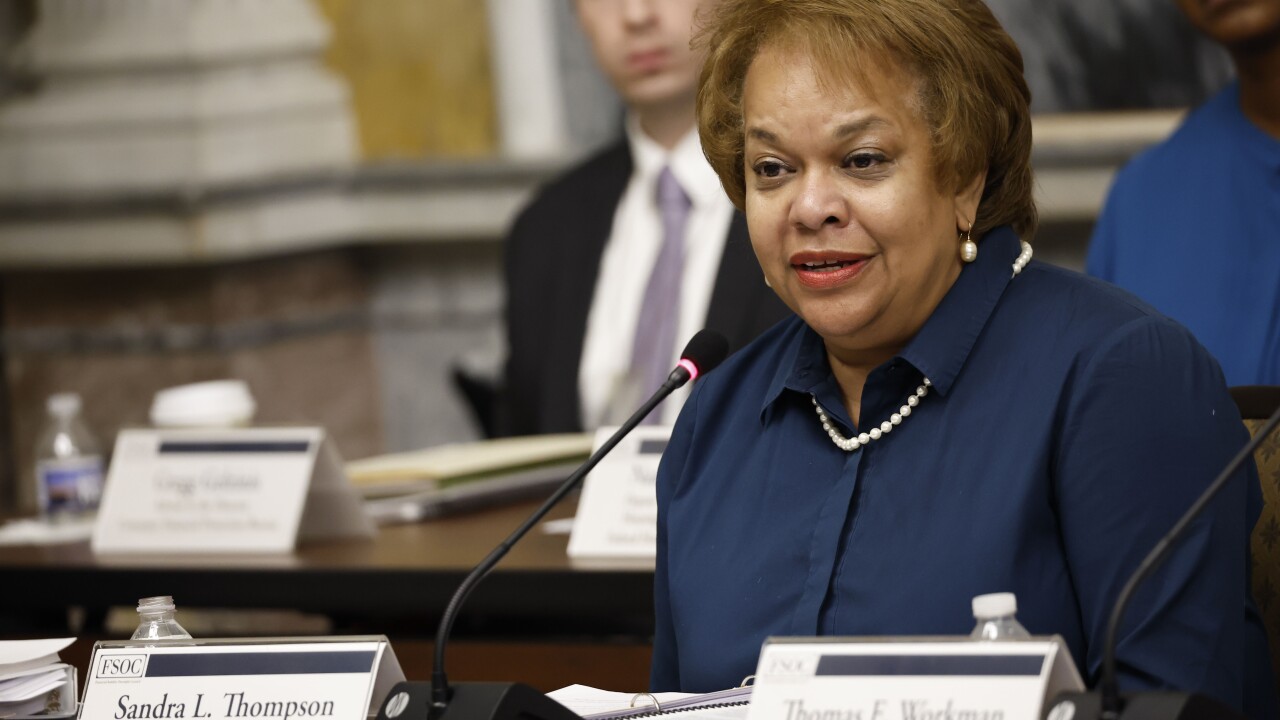
Banks and lenders are once again pitching small-balance commercial mortgages to independent loan brokers as a money-making alternative to the highly regulated residential lending business.
Back in the mid-2000s, promoters of small balance highlighted the fact that these loans are not subject to the anti-kickback provisions of the Real Estate Settlement and Procedures Act, nor any cap on compensation.
In the new environment of the qualified mortgage rule, which caps points and fees at 3%, those benefits remain considerations for residential brokers to give small balance a try. Add in the expectations of reduced residential origination volume in 2014, and one can see why these loans are again being touted at residential trade shows.
"The reality in the business is that there is a demarcation line between residential and commercial. I think that's a little silly," says Chris Hurn, CEO of Mercantile Capital Corp., a subsidiary of Old Florida National Bank. "Somebody on the residential side, they may not have the skill set to do this but they can learn it. They can certainly be a conduit to a lender like us."
Based in Orlando, Mercantile specializes in originating Small Business Administration 504 loans, which allows borrowers to purchase real estate for their own use.
Commercial transactions take longer than residential. Some residential originators expect that a commercial deal might close in as little as three weeks, like most residential mortgages, but it doesn't happen very often. And a result, they get frustrated, Hurn says.
"I think we live in a very specialized world, and all of us, perhaps, are guilty of putting that demarcation line in place. I don't do any residential loans, for instance. Never have and I don't think I am going to," he says. "But it is a good strategy if someone is interested and we certainly talk to residential brokers and we love to help them. We have no problem with that."
The bust caused several of the more notable names in small-balance commercial to disappear, including Bayview Financial and its affiliates InterBay and Silver Hill.
The need is still there for these types of loans. Typically they are "story" loans, meaning there is a reason the property owner can't get financing from a bank, life insurer or conduit lender, says Michael Boggiano, a vice president in commercial real estate at ReadyCap Commercial LLC of Irvine, Calif.
"It could be a hiccup on the credit, it could be that the property type is out of favor," he says.
But don't confuse ReadyCap with a hard money lender. Its rates are closer to what the banks offer. It can be flexible with loan terms. "We do the plain vanilla property types—office, retail, self-storage, industrial and multifamily," Boggiano says. ReadyCap Commercial lends between $500,000 and $10 million.
The company is also willing to provide financing on properties being purchased by foreign nationals.
"We don't differentiate between a domestic borrower and a foreign national borrower. They get the same terms and rates as a domestic borrower gets," Boggiano says. "There is some additional documentation we have to request, but otherwise it is the same underwriting process."
ReadyCap usually gets its applications from commercial mortgage brokers. However, with residential brokers facing a tougher business environment in the months ahead with rising interest rates and the drop in refinance business, "it gives them an opportunity to go ahead and enter the market," Boggiano says. "If they were doing one-to-four unit [properties], they can graduate to five-to-12, which in certain markets will get them into the minimum $500,000 loan threshold that we have."
ReadyCap has been in business for slightly longer than a year. It funded about $125 million that first year. This year, its volume has neared that number and by the end of the year it is expecting to do over $600 million.
This quarter it plans to do its first securitization, which Boggiano says will be the first small-balance commercial deal to come to the market since the crash.
For those looking to bring a deal to ReadyCap, the company has three application forms, each of which should take no more than 20 to 25 minutes to complete.
Once the company has an understanding of the transaction, it can provide guidance and pricing to the originator. Unlike a residential origination, where the underwriting is based largely on the borrower, these loans are underwritten based on property specific criteria such as the rent roll, year-to-date financial statements and two years of operating statements.
Commercial loans are also underwritten using the debt service coverage ratio and debt yield ratio. The former looks at the property's income and whether the owner can cover its operating expenses and mortgage debt. The debt yield ratio measures the property's net operating income as a percentage of the loan amount. This is comparable to the debt-to-income ratio used in residential lending, which measures the borrower's income as a percentage of the loan amount (known as the front-end ratio) and his or her total debt outstanding (the back-end ratio), Boggiano says.
The borrower's credit is also looked at in underwriting. ReadyCap recognizes that most commercial property owners ran into some sort of credit hiccup during the bust years, Boggiano says. But if that is now behind them, it is no longer an issue for the lender.
What may be helping the small-balance commercial market is that the economy has improved slightly, and the modest gain has encouraged some owners to expand their business or purchase the property at which their business is currently renting.
There is a realization that short-term rates are being held low by the Federal Reserve and at some point they will return to normal levels, says Hurn at Mercantile Capital.
"I like the small-business clients we are dealing with today because they are the survivors. They're the ones that are still standing and had taken some of the necessary medication during the recession to get through it. And a lot of these folks are poised for dramatic growth if the economy picks up a little more steam," he says.
Mercantile Capital has been operating for 12 years, through boom and bust cycles. The past three years have been the best three it ever had, Hurn says.
"We bucked the trend a little bit. We had a little bit of a rough 2008 and 2009," he says, but since then the firm has expanded its marketing efforts as well as added people to its credit department.
"I think we captured a bigger share of the 504 marketplace because of those things," Hurn says. "At the same time a lot of historical competitors in effect were out of the business. Either they were physically out of the business or they curtailed their lending efforts dramatically."
Although some of those competitors have returned, "the overall marketplace has a long way to go before we are close to what it was in those 2005-2007 days," he says.
The fundamental reasons for wanting to own the property where one's business is located are similar to the reasons for wanting to own a home—including the emotional aspect.
The business reasons include the potential savings from owning compared to renting and the desire to build equity in an appreciable asset, Hurn says. The tradeoff is more control versus a loss of some flexibility. But property owners have some stability; rent increases are not a factor in their business planning. A variable expense is turned into a fixed expense.
"Every healthy small business ought to own commercial real estate and create wealth for themselves rather than their landlord," Hurn says.





